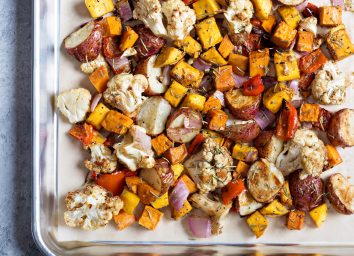7 Simple Ways to Waste Less In Your Kitchen
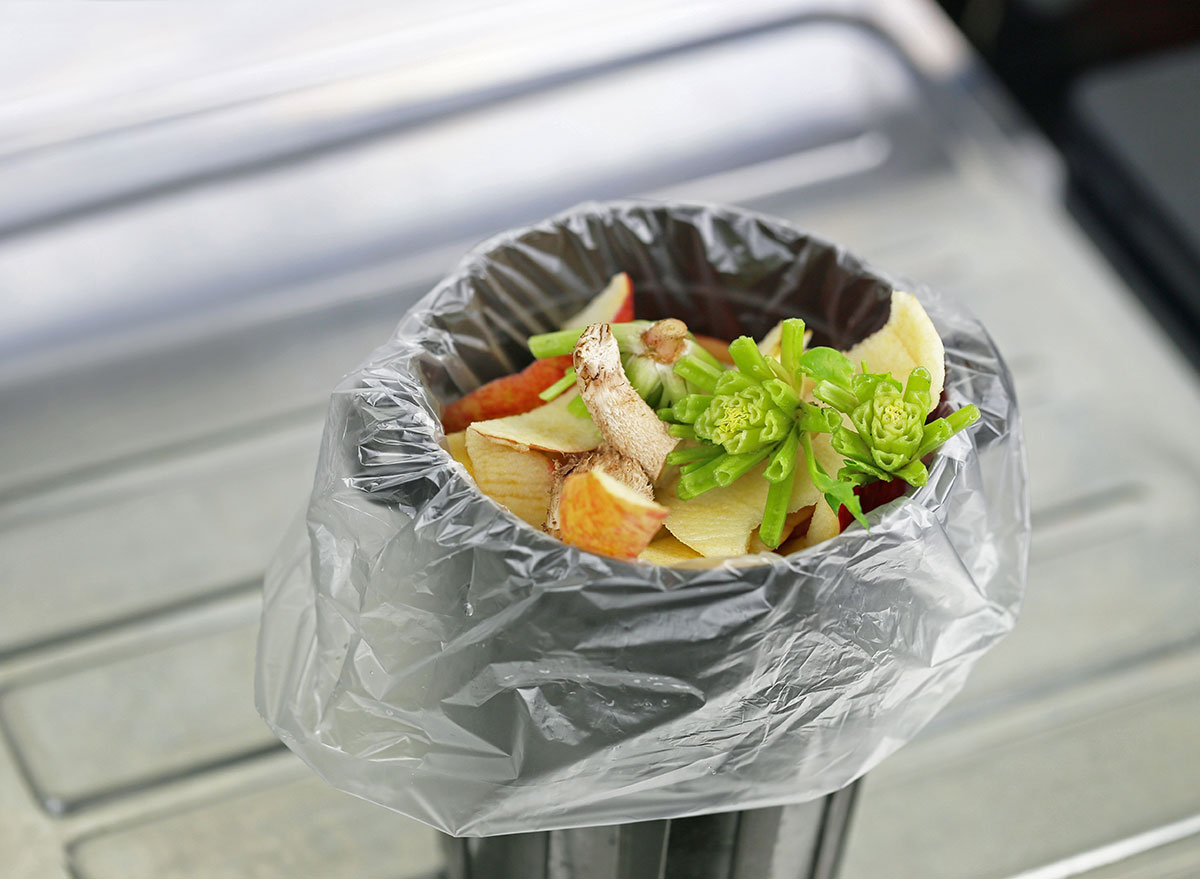
Our kitchens tend to be one of the most wasteful places in our homes. Food waste and plastic build-up are easily the most prominent forms of waste in our landfills. Between plastic packaging for our food products and waste-friendly products when we order takeout like cups, straws, napkins, and even plasticware, throwing out trash has become second nature to our society.
According to the United States Environmental Protection Agency (EPA), the average American throws out 4.9 pounds of waste every single day, which is up by almost half a pound since 2017. 22% of overall waste is food alone. The United States Department of Agriculture (USDA) states that up to 40% of the food that is produced is actually thrown out—sometimes even before it hits grocery shelves. Most grocery stores have cosmetic standards for their produce—like if a tomato isn’t perfectly round, or a potato doesn’t reach a certain diameter, it’s likely thrown out. Even if a product’s packaging is mislabeled, it’s also a goner. And that’s all waste happening right before you even put food in your grocery cart.
The problem of wastefulness in our world may seem like too big of a task to face, but in reality, the small lifestyle changes we can commit to in our kitchens can make a huge difference in the long term. So if you are looking for ways to waste less in the kitchen, here are a few simple tips that will make a significant impact on our planet. And once you get cooking, check out our list of 100 Easiest Recipes You Can Make.
Choose loose produce.
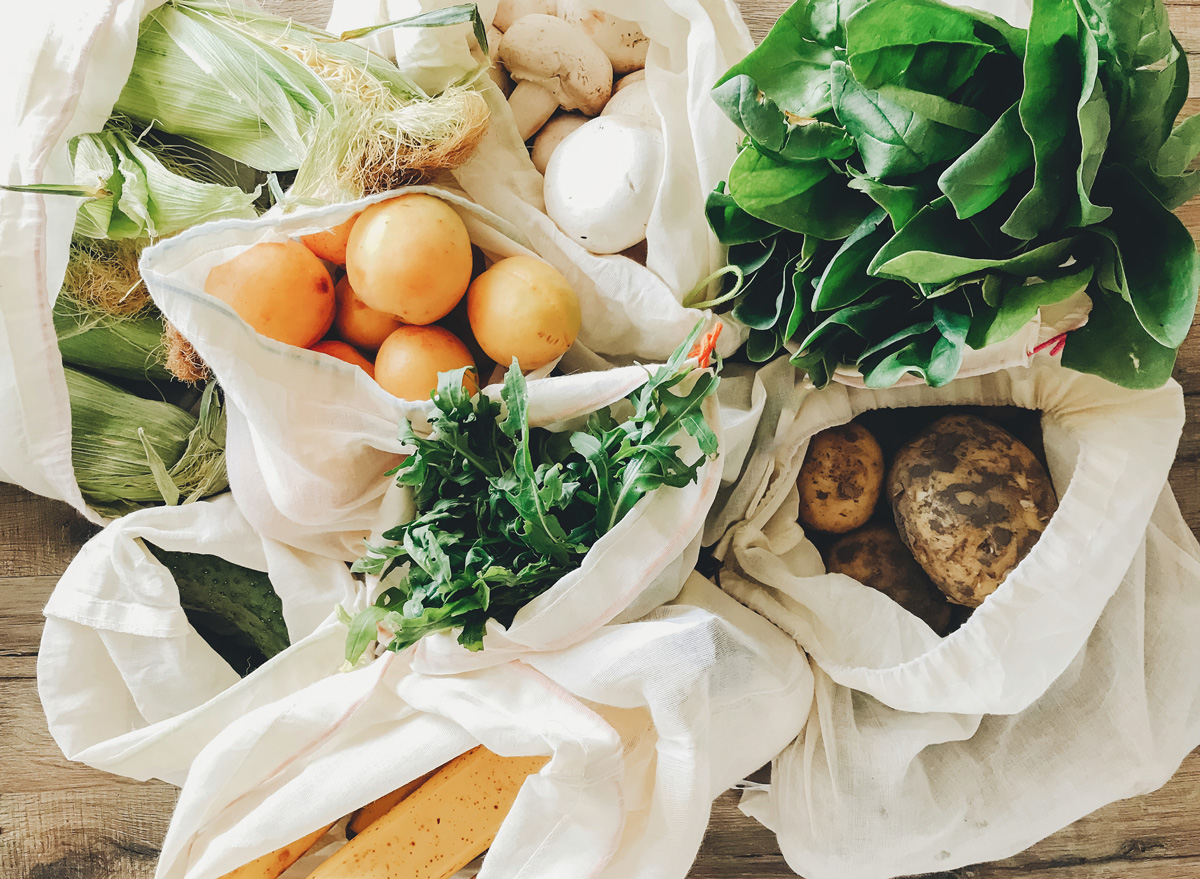
Plastic isn’t a biodegradable material, so if you’re throwing plastic into a plastic garbage bag, that piece of trash will likely sit in a landfill (or worse, floating in that great big garbage patch in the middle of the Pacific ocean) for years and years.
One easy way to reduce your plastic waste is by grabbing produce without plastic packaging. Although plastic packaging can help when it comes to buying precut veggies, buying produce without the extra plastic packaging and giving yourself a little extra time to chop up the vegetables yourself will make a huge difference in the long run.
Plus, take this as an excuse to hit up your local farmer’s market! Here are 15 Things You Should Buy at the Farmers’ Market.
Buy shelf-stable items in bulk.
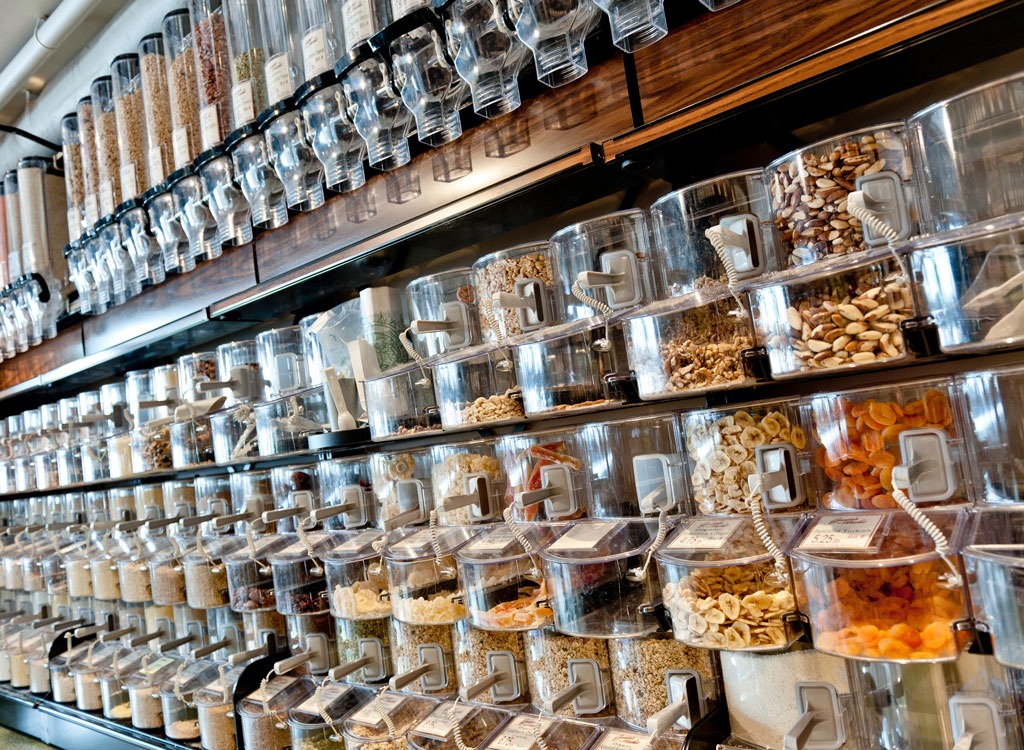
Oats, pasta, rice, nuts, even cereal are all foods that can last on the shelf for a long period of time. Instead of buying them in small packages every week or so, grab a larger box or bag of it so you don’t have to use up so much trash each time you want to buy that item.
Some stores—like Whole Foods—have bulk food sections that allow you to fill up your own bags with these items when you’re at the store. Make sure to buy light reusable mesh bags that can hold these items when you fill-up.
Get even more cooking and grocery tips straight to your inbox by signing up for our newsletter!
Check to see if the packaging is easily recyclable.

Cans for your beans and tuna are easy to recycle. Chip bags? Not so much. If you need to buy staples at the grocery store, try to find your favorite items in materials that you can easily recycle—like boxes, cans, or even heavy-duty plastic containers. Most plastic items will have a recycle sign and a number on it letting you know if it will recycle, and the type of material it is. Here’s a guide you can read up on before you hit the store.
Make sure to also clean out these materials before you recycle them! If you leave your cans and bottles dirty before recycling them, they likely won’t even be recycled—and can even stain or ruin the other materials in the recycling bin. Make sure to clean everything out so you can ensure that it will be recycled.
Here are 15 Ways to Reduce Plastic When Going Out to Eat and Getting Coffee.
Stock up on reusable materials.
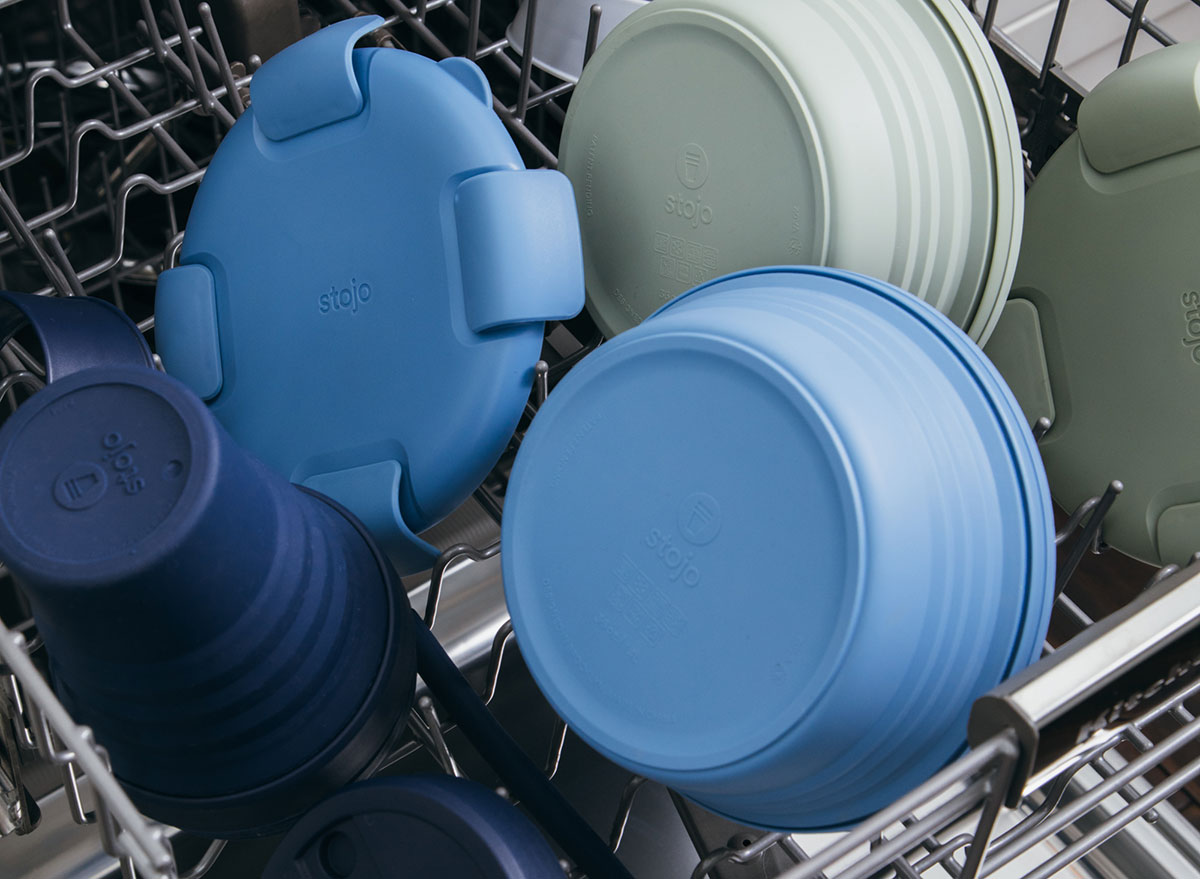
Take a good look at your trash. No, really! Your trash is the best indicator of your wasteful habits and can help you devise a list of the swaps you can make with reusable items in your kitchen. Are there lots of paper towels and napkins? Get reusable ones! Plastic bags from your food leftovers? Invest in some silicone ones! How about coffee cups, water bottles, and straws? You get the idea.
The process of replacing your items with reusable ones may be slow at first, and that’s okay. We can’t all become superheroes overnight! However, a great place to start is grabbing a few reusable items that you can throw in your bag when you leave for the day—like these stackable coffee cups, bowls, and water bottles from Stojo, this bamboo cutlery set from EcoRoots, or even these foldable reusable bags from Baggu.
Even cleaning supplies can be reusable—like buying reusable spray bottles or bamboo dish brushes that can easily compost.
Plan your meals around food you already have.
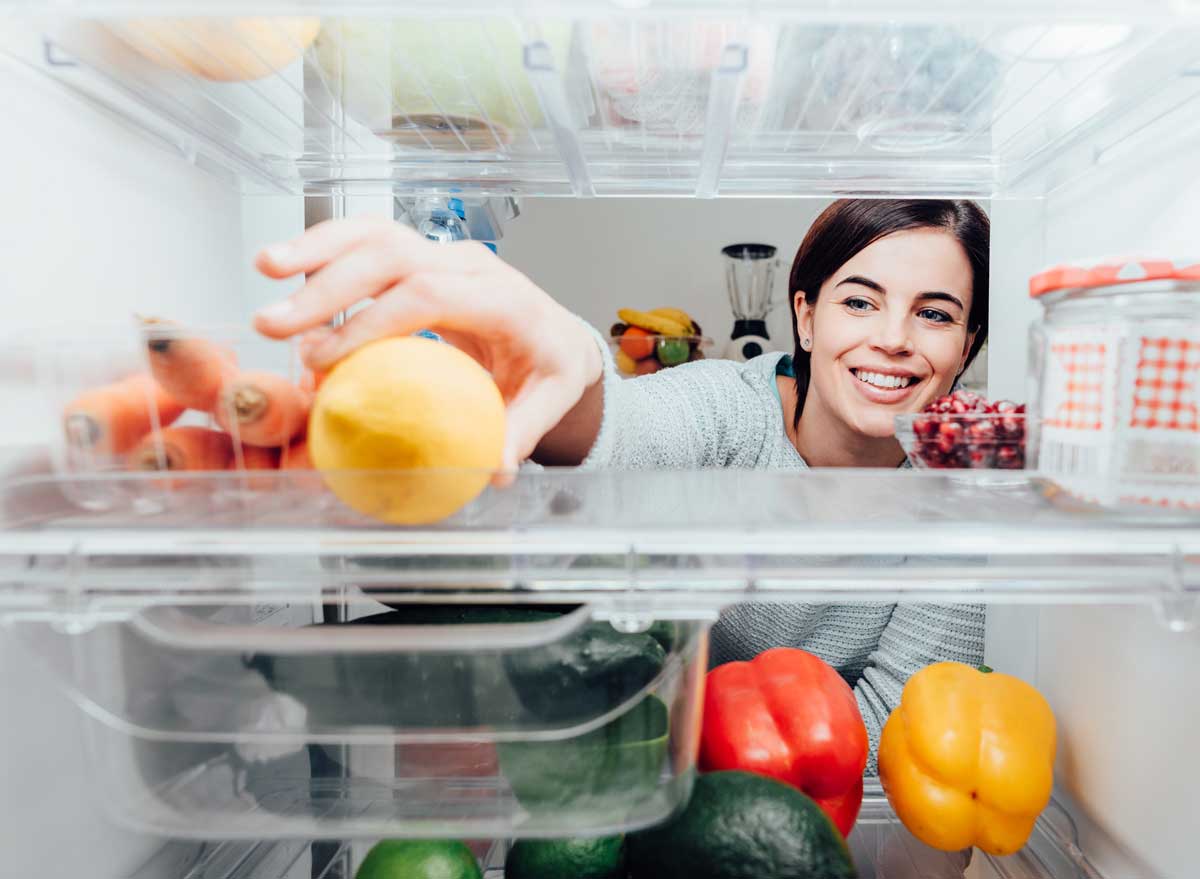
Don’t be that person that buys a bag of lettuce and lets it rot in the back of your fridge. Use it before it goes bad! Before you plan your meals and make your grocery list for the week, take a look in your fridge and your pantry. Are there items that you need to cook up before they go bad? Plan your meals for the week around those items. Not only helps with the amount of waste you are producing during the week, but it will also save you money.
Cut down on even more food waste in your kitchen with these 12 Easy Ways You Can Cut Down on Food Waste Now, According to Experts.
Start a compost.
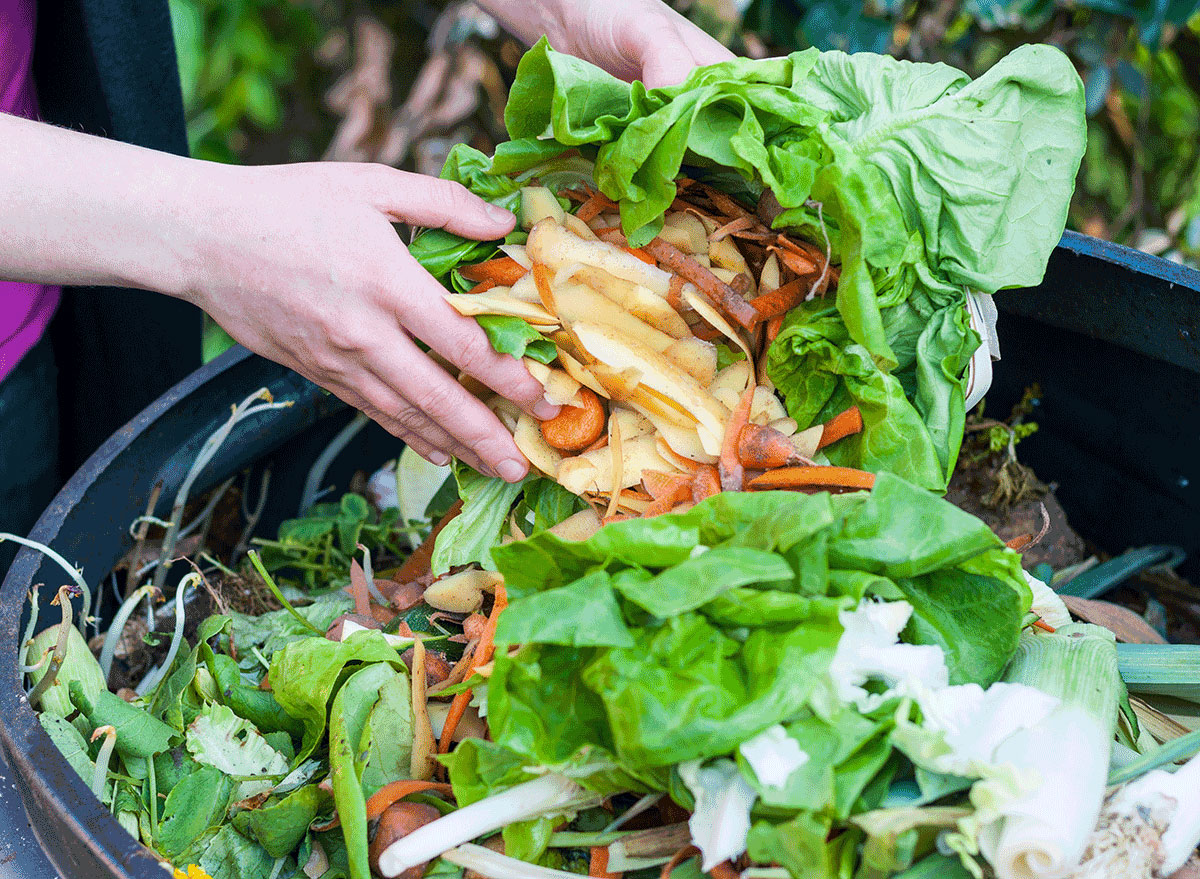
While we all can try our best to use up the food in our fridge, there likely will be some food that will get wasted or even some food scraps that need to go in the trash. Instead of throwing it in your garbage and letting the food rot (causing your trash can to get super smelly), invest in a compost bin! Your food scraps, coffee grounds, paper products, and much more can be thrown into your compost bin. Grab one that has a charcoal filter to help prevent odors, like this one from Net Zero which also comes with a set of compostable bags for easy lifting and carrying your food scraps to the compost pile or collection in your city.
Or use up your items with these 17 Hacks for Leftover Food Scraps!
Dine out.
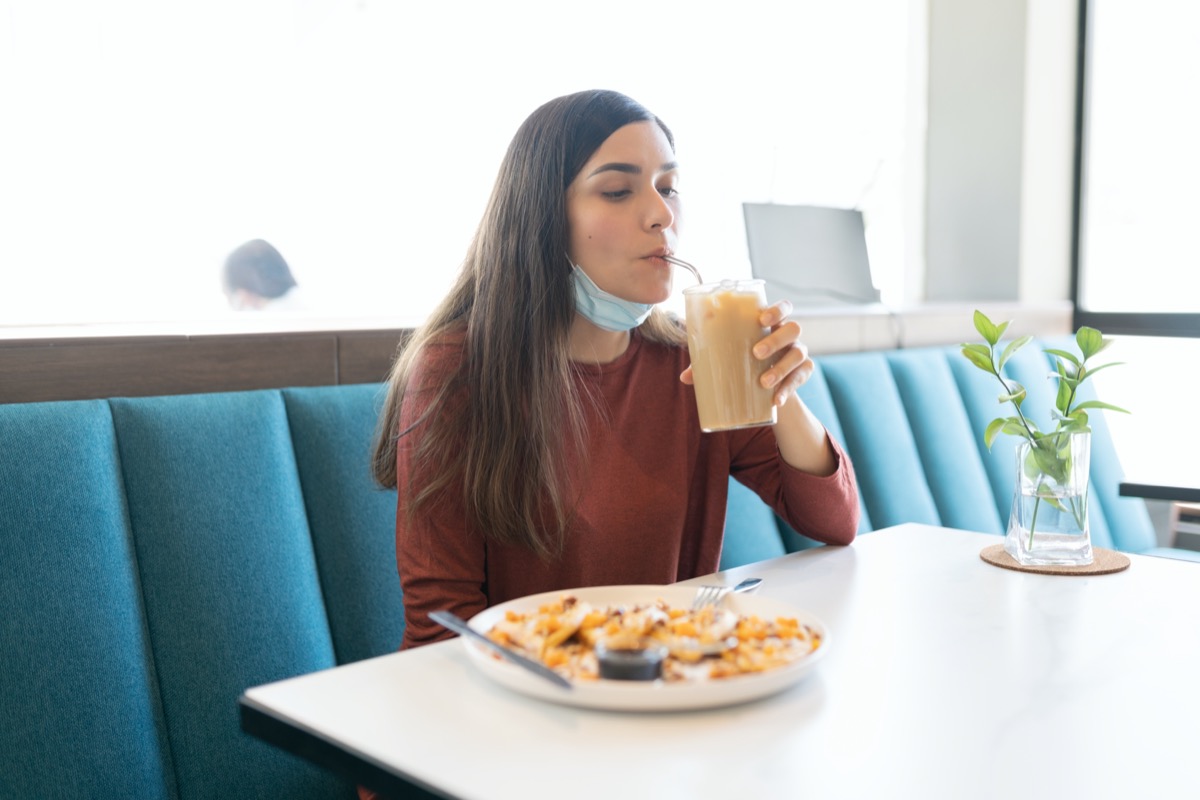
While takeout was the name of the game over the past year, the world is starting to open back up—and restaurants are anxiously anticipating customers. Typically takeout and delivery result in the use of more wasteful products—like plastic containers for sushi or boxes for pizza. Plus not to mention all of the little sauce packets at the bottom of your Chinese takeout bag!
However, when you’re at a restaurant, wasteful items are not used. Depending on the restaurant, you’ll be using real plates, real glasses, and real silverware. Plus, you’re still supporting a local business, and it’s an excuse to go out to one of your favorite eateries in town.
If you’re looking for even more ways to reduce your waste at home, check out our clever list of 23 Genius Tips to Reduce Food Waste.
